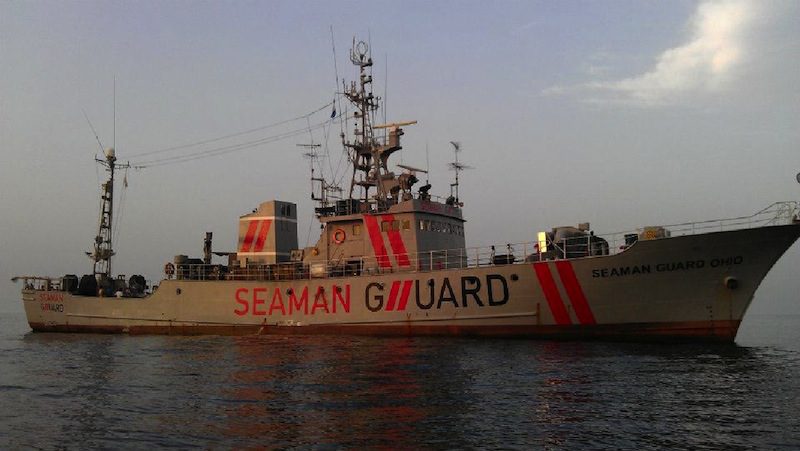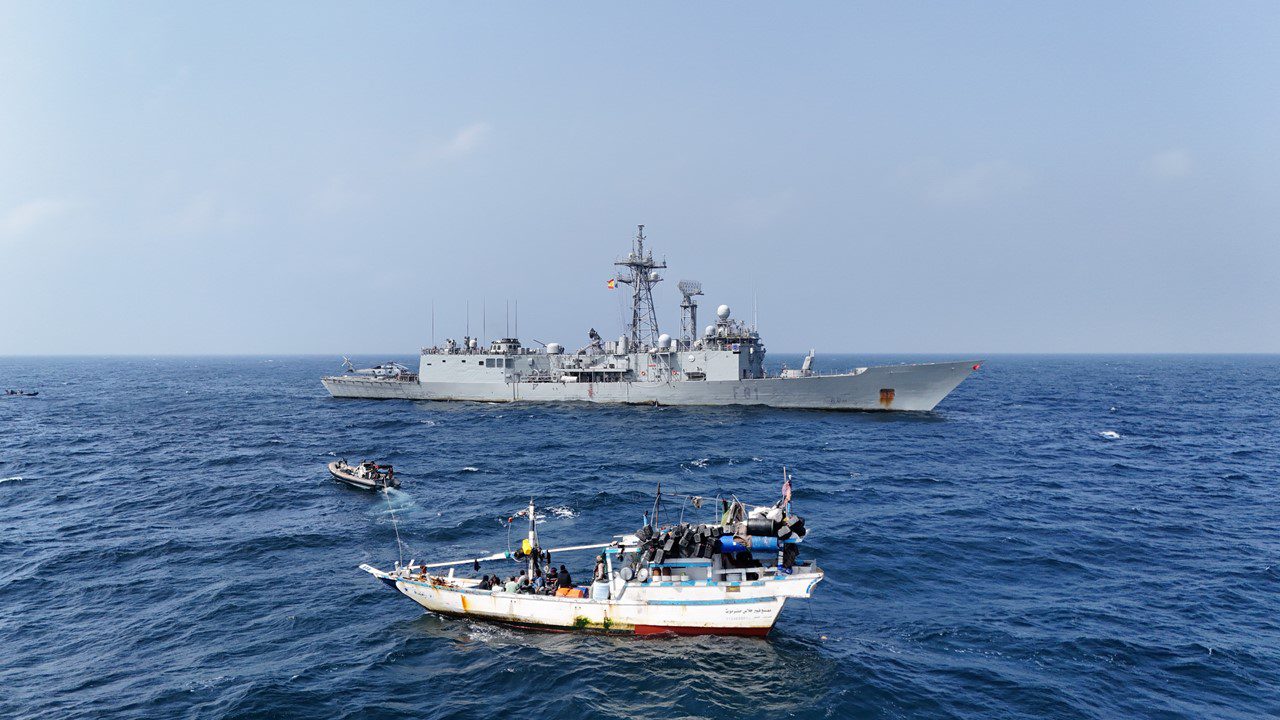AdvanFort’s Seaman Guard Ohio. Photo credit: AdvanFort
 By Anupama Chandrasekaran
By Anupama Chandrasekaran
CHENNAI, India, Oct 13 (Reuters) – India has detained an armed ship operated by a U.S. maritime security company and the 35 people on board for failing to produce papers authorizing it to carry weapons and ammunition in Indian waters, the coast guard said on Sunday.
Coast Guard Commandant Anand Kumar said the ship was stopped on Friday and was being held in the southern port of Tuticorin along with its 10 crew and 25 armed security guards until required documentation is submitted.
The crew and security guards included British, Estonian, Indian and Ukrainian nationals, Kumar said.
The southern tip of India is close to major trading routes from Asia to Europe. Many cargo ships now travel with armed guards to deter pirates. Sri Lanka, close to Tuticorin, is a popular boarding point for private armed guards.
“At the moment the documents are still awaited,” Kumar told Reuters. “We have to see how valid are the documents that they do produce towards their entry into Indian waters and carrying arms and ammunitions.”
The Sierra Leone-flagged ship Seaman Guard Ohio belongs to Virginia-based AdvanFort, a maritime security firm that specializes in anti-piracy operations. AdvanFort and the U.S. consulate in Chennai were not immediately available for comment.
Kumar said the ship was approached and detained on Friday night. He said Indian authorities had been assured they would receive documentation within an hour of the detention, but that 24 hours later the ship’s master had still not produced them.
In February last year, two Indian fishermen were allegedly shot dead by two Italian marines serving as security guards on an Italian-flagged oil tanker off the Kerala coast. The marines are currently being prosecuted in India.
The incident highlighted the loosely-regulated practice of placing private and military armed guards on ships for protection against pirate attacks.
Pirate attacks cost billions of dollars every year – as much as $5.7-6.1 billion in 2012, according to The Oceans Beyond Piracy advocacy group. (Editing by Frank Jack Daniel and Andrew Roche)
© 2013 Thomson Reuters. All rights reserved.
(gCaptain UPDATE: AdvanFort has released a press statement that can be found HERE.)

 Join The Club
Join The Club











